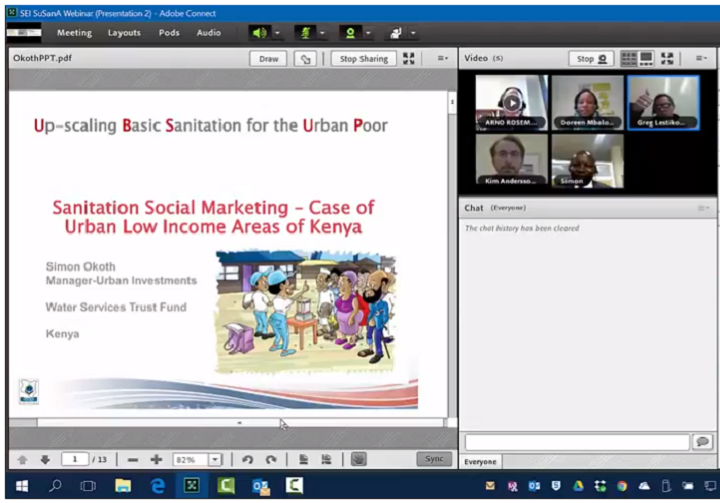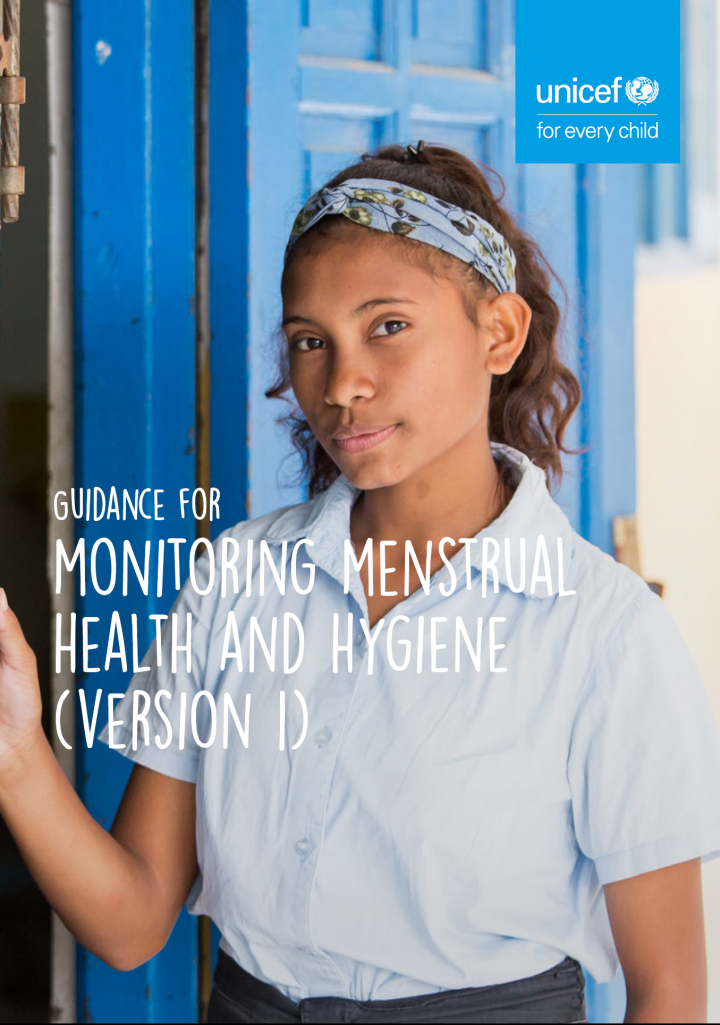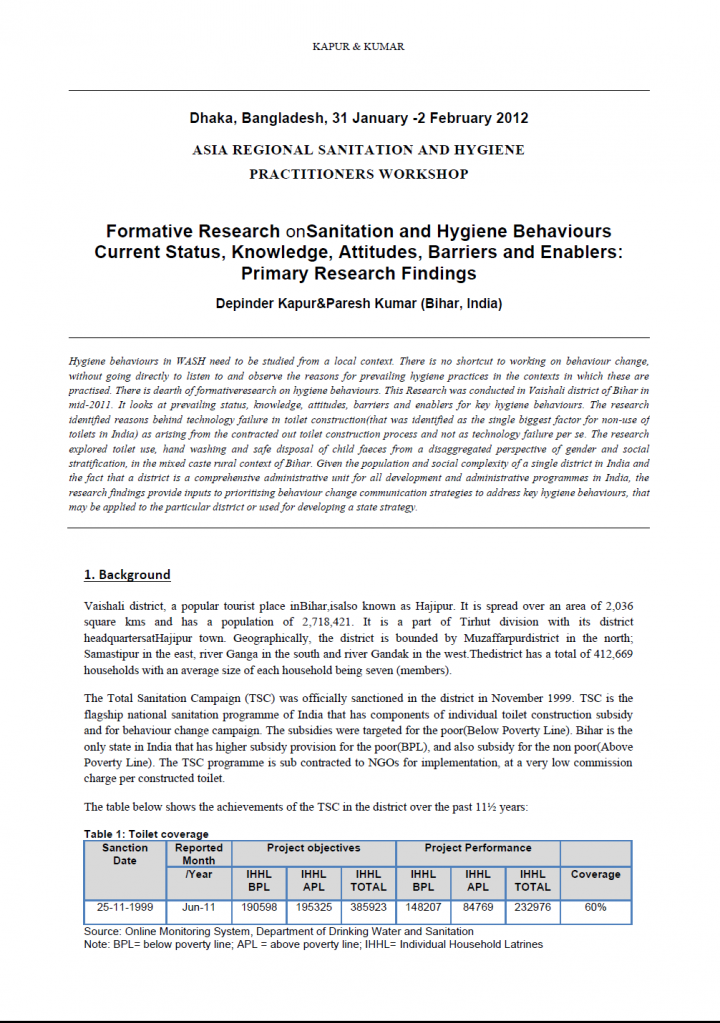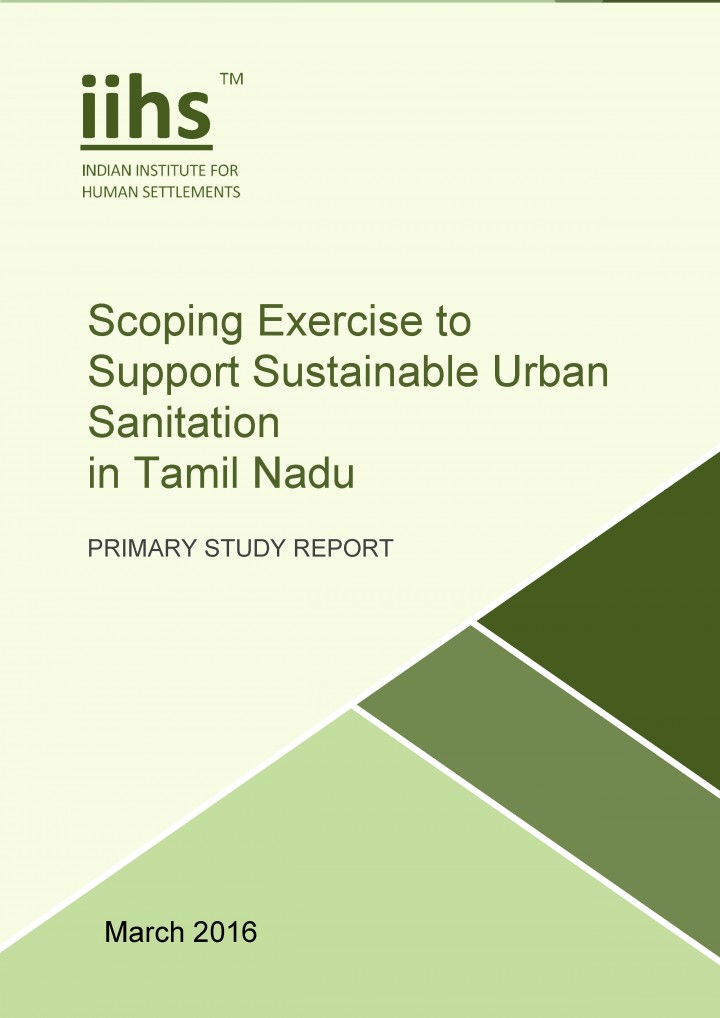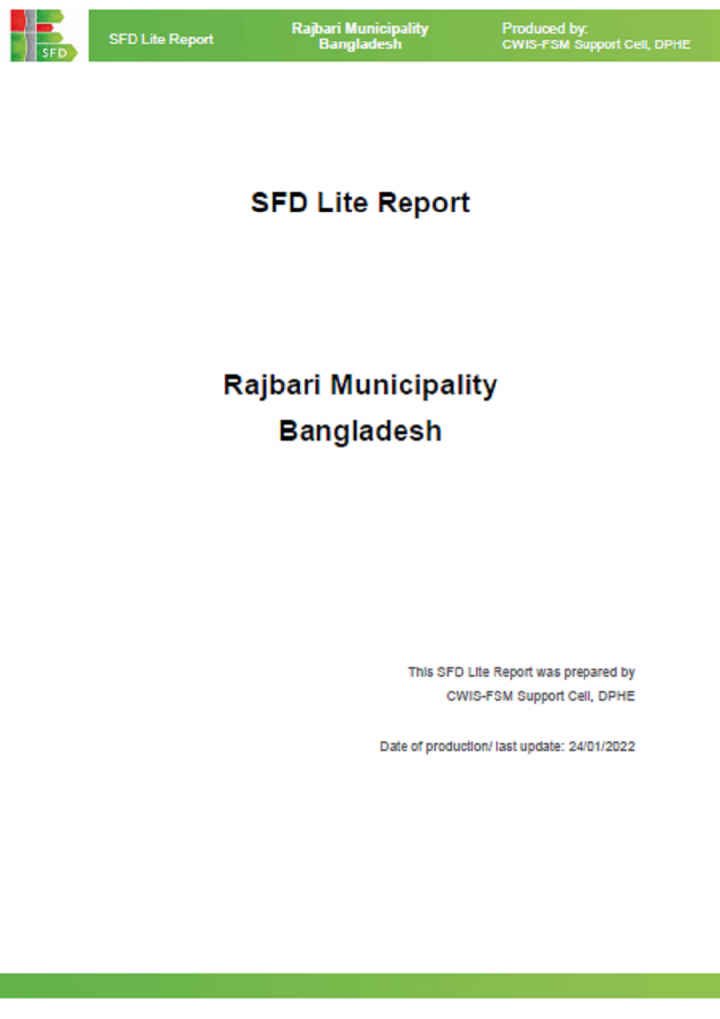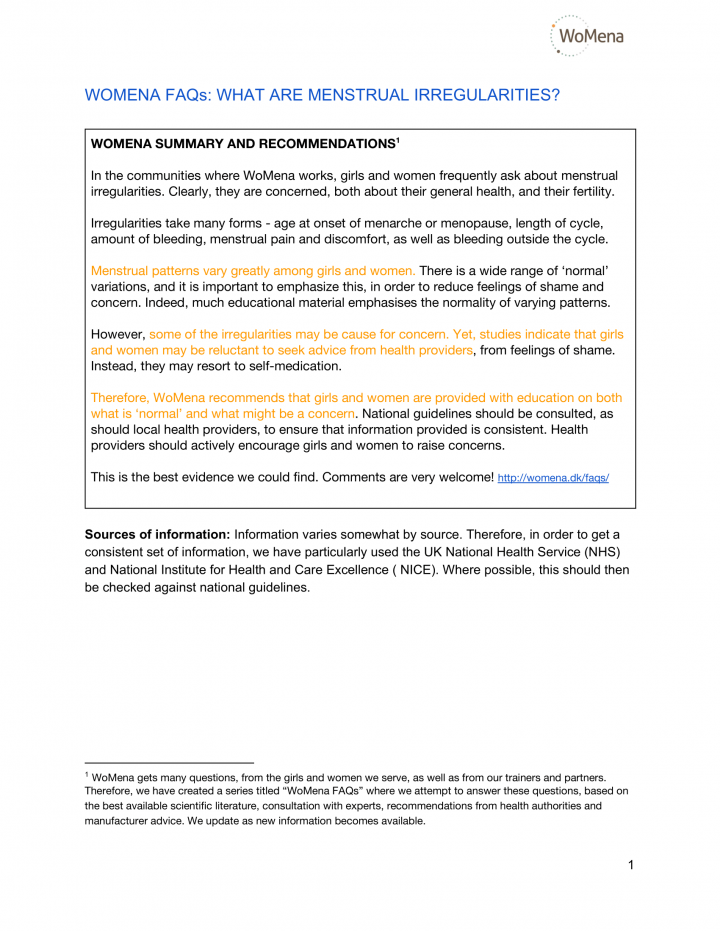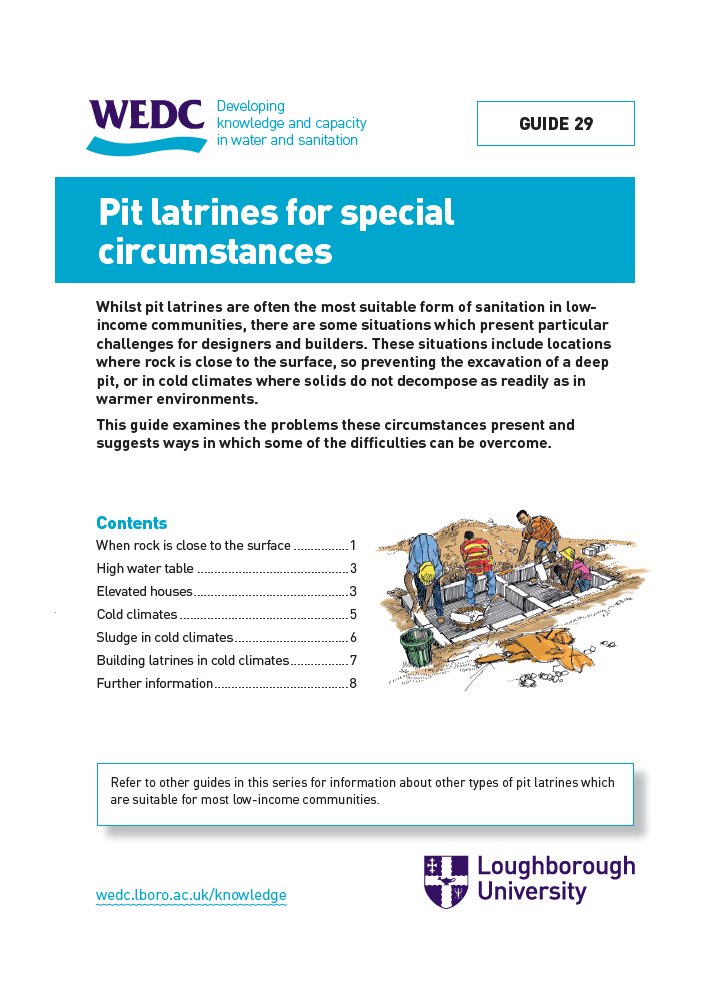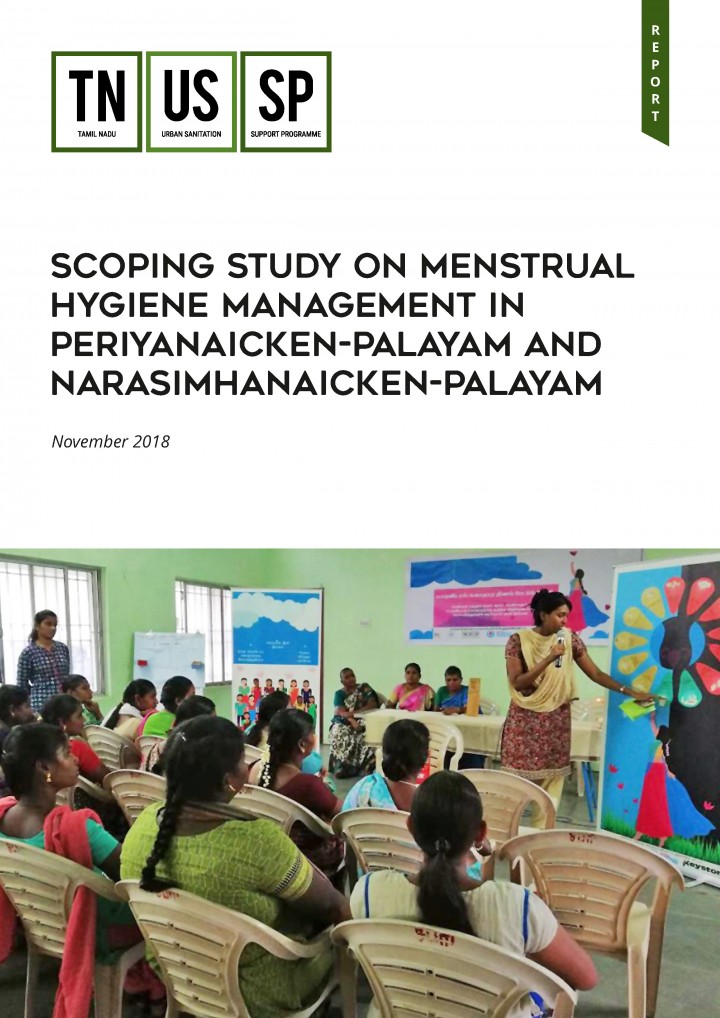Searching for information on Sanitation Workers?
The Sanitation Workers Knowledge + Learning Hub is the best source for all current news, trends, articles and updates on sanitation workers rights around the world.
There has been significant increased attention to menstrual health and hygiene (MHH) in the WASH sector over the past decade, but it has not been accompanied by robust or consistent monitoring. While there is not yet sufficient evidence to recommend a comprehensive set of validated indicators and questions to support MHH monitoring, there are simple steps that can be taken now by governments and …
Hygiene behaviours in WASH need to be studied from a local context. There is no shortcut to working on behaviour change, without going directly to listen to and observe the reasons for prevailing hygiene practices in the contexts in which these are practised. There is dearth of formativeresearch on hygiene behaviours.
Greening innovation and urban agriculture can bring dignity, empowerment and food sovereignty to refugee communities. Simple technologies and waste recovery make these techniques cost effective and adaptable. Both should be central to designing, implementing and sustaining both refugee camps and overcrowded urban areas. This report examines current and potential use of greening innovation and …
This project was financed by EU, SIDA and GTZ (BMZ). It had been implemented by the EcoSan Promotion Project of the Deutsche Gesellschaft für Technische Zusammenarbeit (GTZ) in 2007 to 2010. More than 800 toilets, so called Urine Diversion Dehydration Toilets (UDDTs) were constructed with CBOs and beneficiaries at households and at schools in rural and peri-urban areas. A different technology …
‘Leave no one behind’ is at the core of the Sustainable Development Goals (SDGs). Leave no one behind means for Sanitation for Millions that everyone, in any inhabited place, has access to a safely managed sanitation facilities and/or safe (hand-) hygiene, and thus can fulfil his/her WASH needs adequately and with dignity. Yet, as per WHO and UNICEF still more than 4.2 billion people suffer …
The threatening shortage of phosphorus – a key component of fertilisers – is crucial for the world’s food supplies. Phosphorus is an essential nutrient for all plants and animals. It is also one of the three key components (together with nitrogen and potassium) of fertilisers, and therefore crucial for the world’s food supply system. Phosphorus shortage will be one of the most pressing …
Collection, collation, analysis, and synthesis of qualitative and quantitative information, gathered and analysed using appropriate sources, tools, and methods is the cornerstone of rapid needs assessments that allows decision makers to plan a timely, appropriate, and coordinated emergency response.
This report presents a framework for preventing marine litter based on the source-to-sea conceptual framework presented in Granit et al., 2017 and the practitioners’ guidance for implementing the source-to-sea approach in Mathews et al., 2019. Addressing issues from the holistic perspective of the source-to-sea system and strengthening coordination between sectors is central to the …
Lakhimpur Kheri is the largest district in Uttar Pradesh, India, on the border with Nepal. Its administrative capital is the city of Lakhimpur. Lakhimpur Kheri district is a part of Lucknow division, with a total area of 7,680 km2 (2,970 sq. mi) out of which 10.10 km2 is the Lakhimpur Nagar Palika. This SFD Report was produced and last updated on 16/09/2020.
With a view to scope the tasks under the Tamil Nadu sanitation mission, IIHS carried out a scoping exercise in 2015 to gain an in-depth understanding of the current arrangements and practices in the full cycle of sanitation. The study assessed a range of issues across the sanitation cycle including design and construction practices of on-site sanitation systems, septage collection and waste …
Rajbari municipality, the district headquarter of Rajbari district is situated in Dhaka Division, Bangladesh. It is located 110 km from the capital Dhaka. It is beside the Padma River, and it is well connected with road and water. Rajbari Municipality was established in 1913 and was recognized as Town Committee. Later in 1923, it was renamed as Rajbari Municipality. It is one of the oldest towns …
This manual for using and developing modules is intended as a reference for facilitators of sanitation entrepreneur training courses. This manual contains the curriculums for the modules that form the basis for design of the training modules. It also contains technical details for delivering the topics for each phase. Using this manual, the facilitator should have a firm understanding of what is …
A transect walk involves walking through the community to observe and discuss the daily activities, the surroundings and the risks and resources. It is used to note the sites and topography of the area, to understand interrelationships based on space. It is a useful exercise to do in the assessment stage to get a feeling for the issues and capacities which exist in a community. In the programming …
Kalpetta is a town and a municipality in the Wayanad district, state of Kerala, India. The FSTP uses vermifiltration where worm-based sludge treatment is combined with water filtration to digest organic matter present in septage. The worms need only air, water, and sludge (food) to operate efficiently as a part of the vermifiltration system.
The Tiger Biofilter technique is based on …
In the communities where WoMena works, girls and women frequently ask about menstrual irregularities. Clearly, they are concerned, both about their general health, and their fertility. Irregularities take many forms - age at onset of menarche or menopause, length of cycle, amount of bleeding, menstrual pain and discomfort, as well as bleeding outside the cycle.
Menstrual patterns vary greatly …
Whilst pit latrines are often the most suitable form of sanitation in lowincome communities, there are some situations which present particular challenges for designers and builders. These situations include locations where rock is close to the surface, so preventing the excavation of a deep pit, or in cold climates where solids do not decompose as readily as in warmer environments. This guide …
In 2016 WHO introduced the Cholera Kits. These kits replace the Interagency Diarrhoeal Disease Kit (IDDK) which had been used for many years. The Cholera Kit is designed to be flexible and adaptable for preparedness and outbreak response in different contexts. The overall Cholera Kit is made up of an Investigation Kit, Laboratory materials, 3 Treatment Kits (community, periphery and central) and …
Bandipora city is the headquarters in Bandipora District. Bandipora District is one of the 22 districts of Jammu and Kashmir Union Territory. The District lies in Northern Kashmir with Baramulla District in South and Kargil District in East. It is the 14th largest District by population in Jammu and Kashmir.
Bandipora city is located at a distance of 47 km from Srinagar and at a distance of …
Homna is a sub-district town of Comilla district in the division of Chittagong, Bangladesh. The town is situated beside the Titas River and well connected with road and water to the capital city Dhaka. It town was declared as Municipality in 2002.
According to the population census of 2011 by the Bangladesh Bureau of Statistics (BBS), the Municipality population was 29,173. The urban population …
Improper disposal of menstrual waste is a noteworthy challenge when it comes to Menstrual Hygiene Management (MHM). Polymeric sanitary napkins, which have largely replaced cloth napkins, are made of material that is non-biodegradable, leading to the accumulation of used napkins in landfills. Accumulated menstrual waste can be hazardous because menstrual blood on napkins stagnates for a long time …
These guidelines provide additional support and information on designing and implementing hygiene promotion programmes or elements of hygiene promotion in the programmes of other sectors. They should be used in conjunction with the UNHCR WASH Manual and the summary guidance in the Hygiene Promotion Chapter of this manual.

